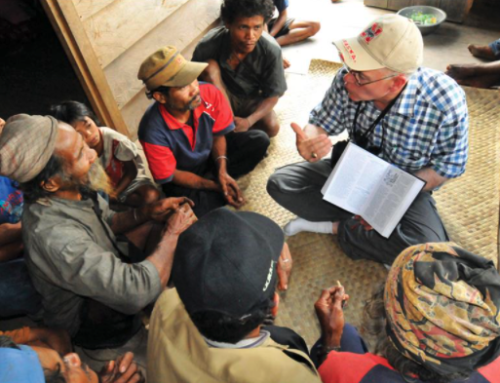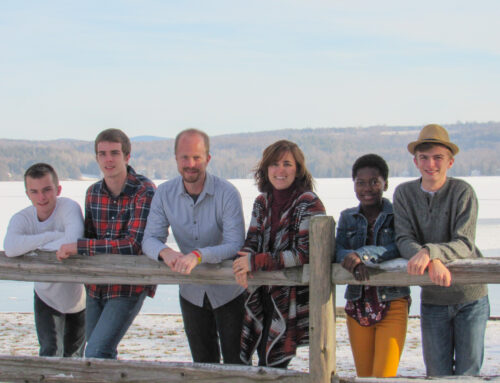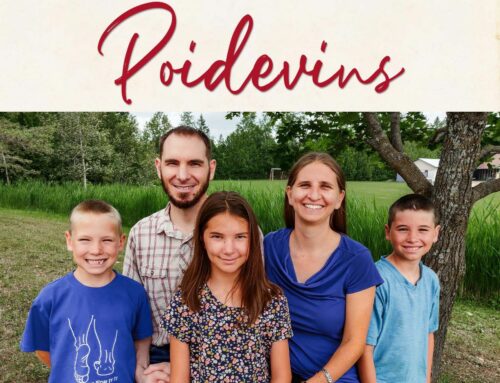A medical emergency opens the door to the Gospel for a young man in Papua New Guinea.
It was yet another morning of screening patients when the doctor walked in and asked, “Did you hear that we have an emergency case coming? They said it has taken four men to carry him. We’ll be needing that bed.”
Upon realizing that the group was already at the door, I excused the patient I was screening back to the waiting room and went to see if they needed help.
Four men carried in a narrow makeshift stretcher bearing a young man with his head turned to the right. One man explained that the young man could not turn his head. At first glance, we could already see the changes brought on by left-sided paralysis. The blood pressure cuff consistently read an elevated pressure of 140-150s/90-100s and an accelerated heart rate in the 120s.
As the doctor began to collect the story, the diagnosis became clear and the prognosis was not good. Two months ago, the young man had suddenly been struck with one-sided paralysis on his left side and had moved very little since that day. He’d lost weight and was not eating much. He seemed to have suffered a brain bleed of some sort—most likely a stroke or an aneurysm.
This is not a sickness we can fix. One more ruptured aneurysm or one more stroke or infection—any of these things and more and he would die.
The young man, his father and his family were not Christians. It is natural in any culture for families to want to blame someone at a time like this. In this culture that can mean a literal witch hunt to find and kill the person who allegedly placed a curse on him. Or should have helped, but didn’t. Or even someone who happened to be in the vicinity.
The doctor and the pastor worked carefully to explain the facts to the family. They explained that this “old person’s sickness” was not a curse, and that, in fact, it happens to people of all ages. They explained there was no medicine to fix it and that time was limited.
The news was heard and seemed to be understood. But who can accept the news that their life is almost over? That the life of their child is almost over?
The family decided that they were no longer able to provide the constant care that this young man needed so the pastor and his wife decided to take him into their home.
The pastor spent most days talking to this young man about the Gospel and what Jesus had done for him. Because he knew he didn’t have much time, the pastor said, “I cut straight to the head of story.”
He shared how we are sinners not deserving anything but hell. He shared the truth of God’s great love, a love that paid sin’s death penalty so that we can be forgiven by Him.
After about a week of this talk, the young man came to believe and made a clear statement of his faith in Christ.
At one point, the young man’s father sent a witch doctor to chant over his son to release him from the evil spirit that held him in this sickness. The pastor firmly sent the man away. “We have God and what you do is not the truth. We have God. We do not need you.”
The young man was weakening. Soon after his statement of belief, he became so still that it appeared he had died.
But after an hour or so he roused again, woke up and with great clarity said, “I am so happy! Jesus has saved me! I see a bright light but I am so happy! I am going to see His face!”
Then, looking over at the pastor’s grown children gathered around, he said, “You must listen to your father. This man speaks truth. He knows what he is talking about. You must listen to him and believe in God.”
And then he died.
How precious to hear of this young man’s response to the truth before he died! What a testimony to give at such a time!
Yes, we lost a patient—but we gained a brother!






